| |
| |
| |
| Presented By The Boeing Company |
| |
| Axios AM Deep Dive |
| By Mike Allen ·Nov 21, 2020 |
| Welcome to our Deep Dive into the future of air travel, led by Axios' Joann Muller. - Tune in to "Axios on HBO" on Monday at 11 p.m. ET/PT for Felix Salmon's interview with Southwest Airlines CEO Gary Kelly. See a clip.
- For more on the future of flying, check out this episode of Dan Primack's "Axios Re:Cap" podcast.
Smart Brevity™ count: 960 words, or 3 1/2 minutes. |
| |
| |
| 1 big thing: Airlines plot course for virus survival |
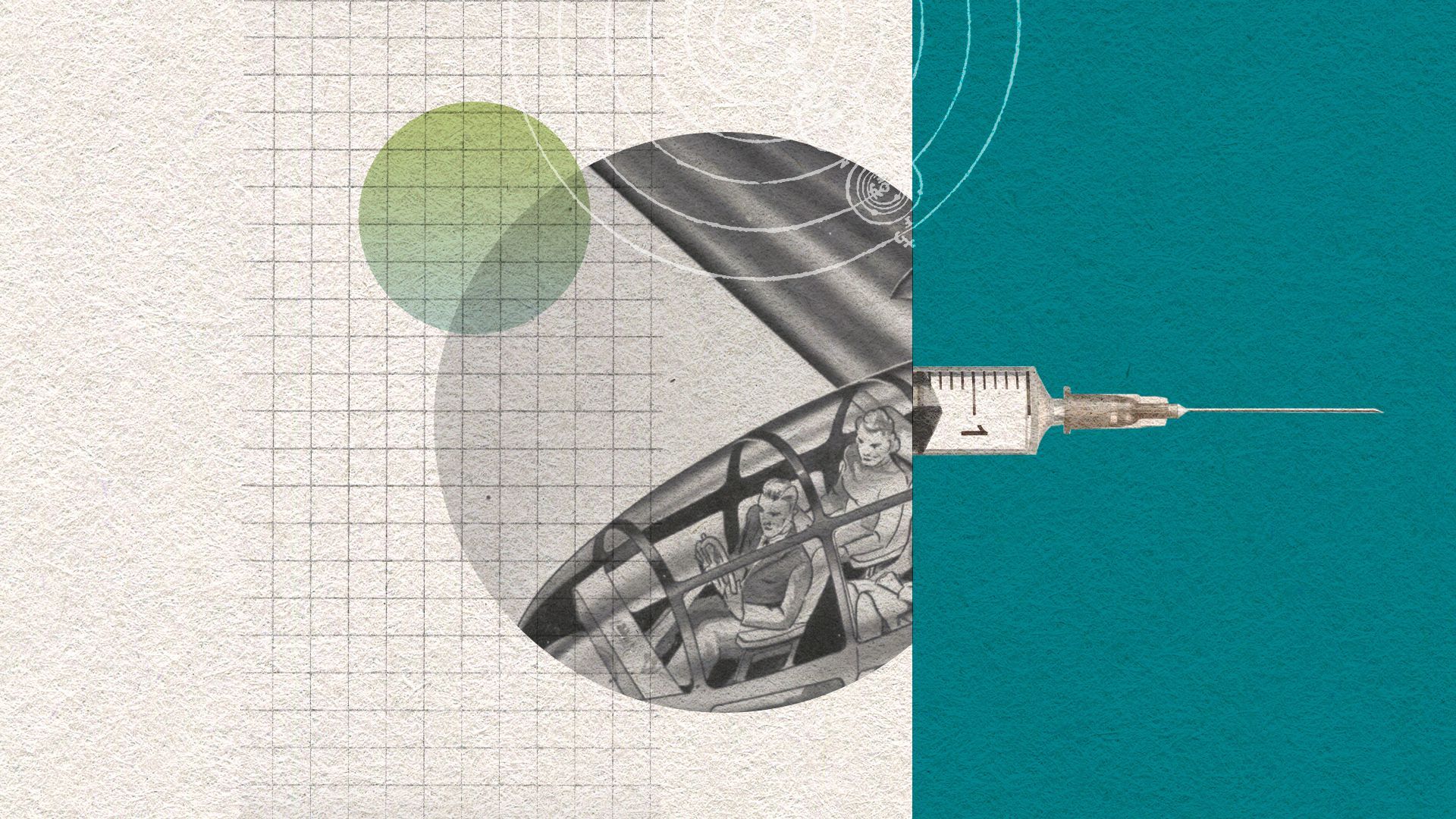 |
|
| Illustration: Aïda Amer/Axios. Photo: Ann Ronan Pictures, Bettmann/Getty Images |
| |
| To get people flying again, airlines are pushing testing and considering innovations like digital health passes, Joann writes. - Why it matters: It could take years for large swaths of the world to be immunized.
The big picture: A record 26 million passengers cleared U.S. airport security during the 10-day Thanksgiving travel period in 2019. - This Thanksgiving, with cases soaring and health officials urging people to stay home, AAA predicts holiday air travel could fall by nearly half.
- But even that would be a welcome Thanksgiving bump over recent passenger traffic, which is down 65% from a year ago.
What they're doing: Airlines have partnered with medical institutions like the Cleveland Clinic and Mayo Clinic to create new health safety protocols. - They've adopted mask requirements (the FAA has none) and added enhanced cleaning between flights.
- Despite the hit to revenues, some are limiting passenger capacity by blocking middle seats.
Now they're trying to prod government leaders in the U.S. and Europe to lift onerous quarantine rules that have stifled international travel. - They're urging pre-flight testing and digital health passes to verify who's safe to fly. The cost would likely get rolled into your airfare, as airport security fees are now.
- The industry hopes results from early testing efforts at select airports will convince government officials to safely reopen borders, says David Evans, co-CEO of Collinson, which runs London's Heathrow Airport test site.
- Hawaii, which lifted its quarantine restrictions in October for those who test negative before arriving, is seeing a promising uptick in tourist travel, says Airlines for America.
Where it stands: Government aid that helped airlines limp along for a while — and keep employees on the payroll — expired Oct. 1, and further relief isn't likely anytime soon. - An estimated 90,000 airline jobs will be gone by year-end, and 1 in 4 planes remain parked.
- With $36 billion in losses already this year, U.S. carriers are burning cash at a rate of $180 million per day.
- To offset those losses, they're flying more cargo and adding leisure flights to the Sunbelt this winter.
What to watch: There's broad public interest in getting planes back in the air: They're needed to distribute the vaccine. |
    |
| |
| |
| 2. The TSA plunge |
 Data: TSA. Chart: Sara Wise/Axios |
    |
| |
| |
| 3. Tourists move up front |
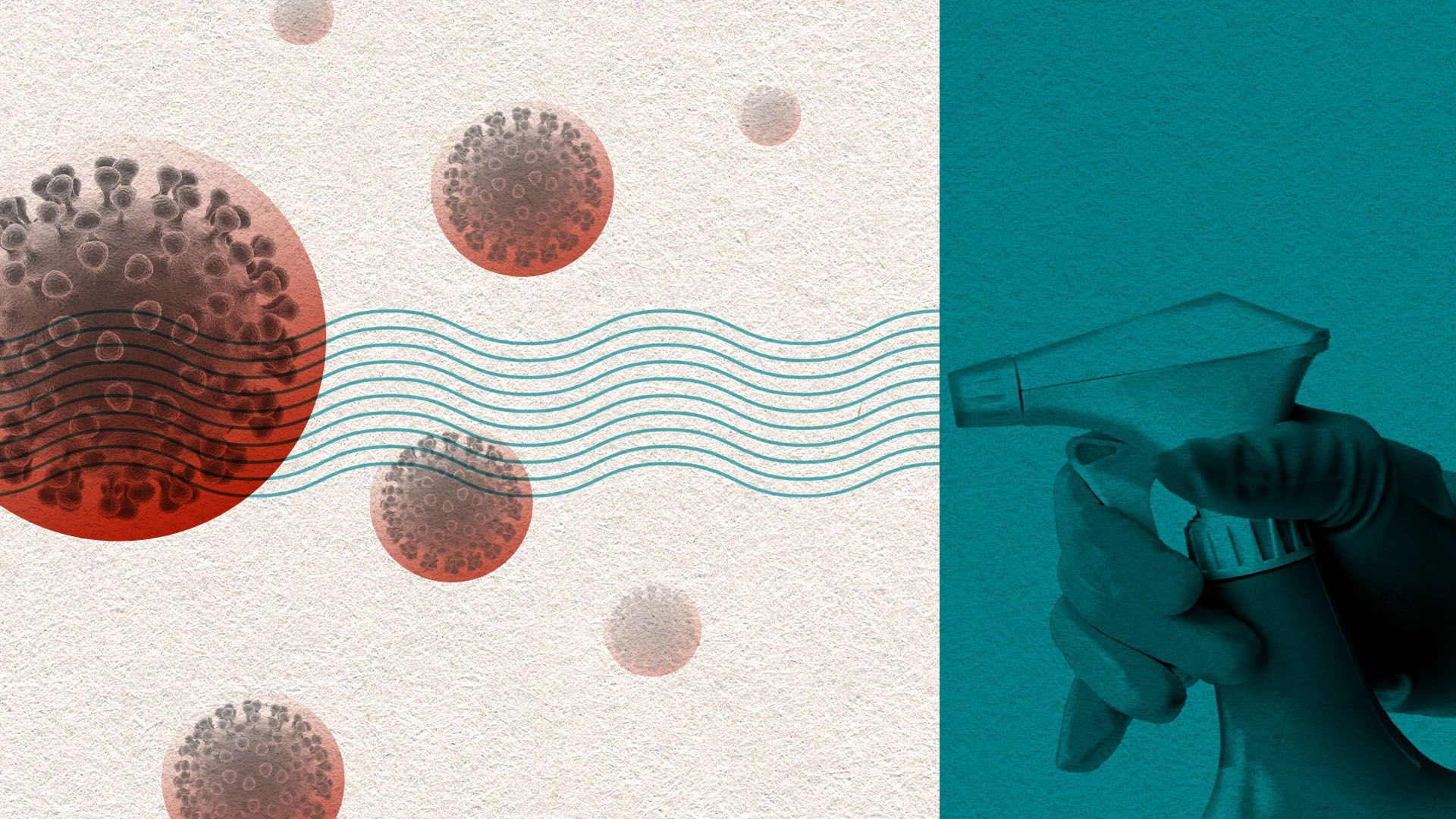 |
|
| Illustration: Sarah Grillo/Axios |
| |
| Business travel remains depressed, but some airlines are seeing more leisure travelers in their first-class cabins. Why it matters: For those who can afford it, premium class seats offer a little extra breathing room. - Lufthansa's CEO told investors earlier this month his planes were seeing fewer corporate customers and more wealthy French, German and Swiss leisure travelers in first class.
For the record: Airlines say everyone benefits from the extra precautions they've implemented to protect travelers, no matter where they're sitting on the plane. - A recent Harvard study commissioned by the industry concluded the risk of transmission on an airplane is "very low" and that being on an airplane is "as safe if not significantly safer" than going to the grocery store and eating at a restaurant.
- The CDC has not confirmed any cases of airplane transmission, but that doesn't mean it hasn't happened, a spokeswoman told The Washington Post.
Yes, but: Social distancing is still harder in economy class. - Some airlines opted to block middle seats to give people more space, but that's not good for the bottom line. Southwest Airlines says it'll stop the practice starting Dec. 1, and others are set to follow.
- Only Delta Air Lines has said it will continue blocking middle seats through the first quarter.
|
    |
| |
| |
| A message from The Boeing Company |
| Working together to keep you healthy |
| |
 |
| |
| A global partnership has implemented systems to keep travelers and flight crews healthy. Research indicates mask-wearing along with the aircraft's cabin ventilation system help to reduce the risk of virus transmission while flying. See how the industry is coming together. |
| |
| |
| 4. Touchless travel eliminates jobs |
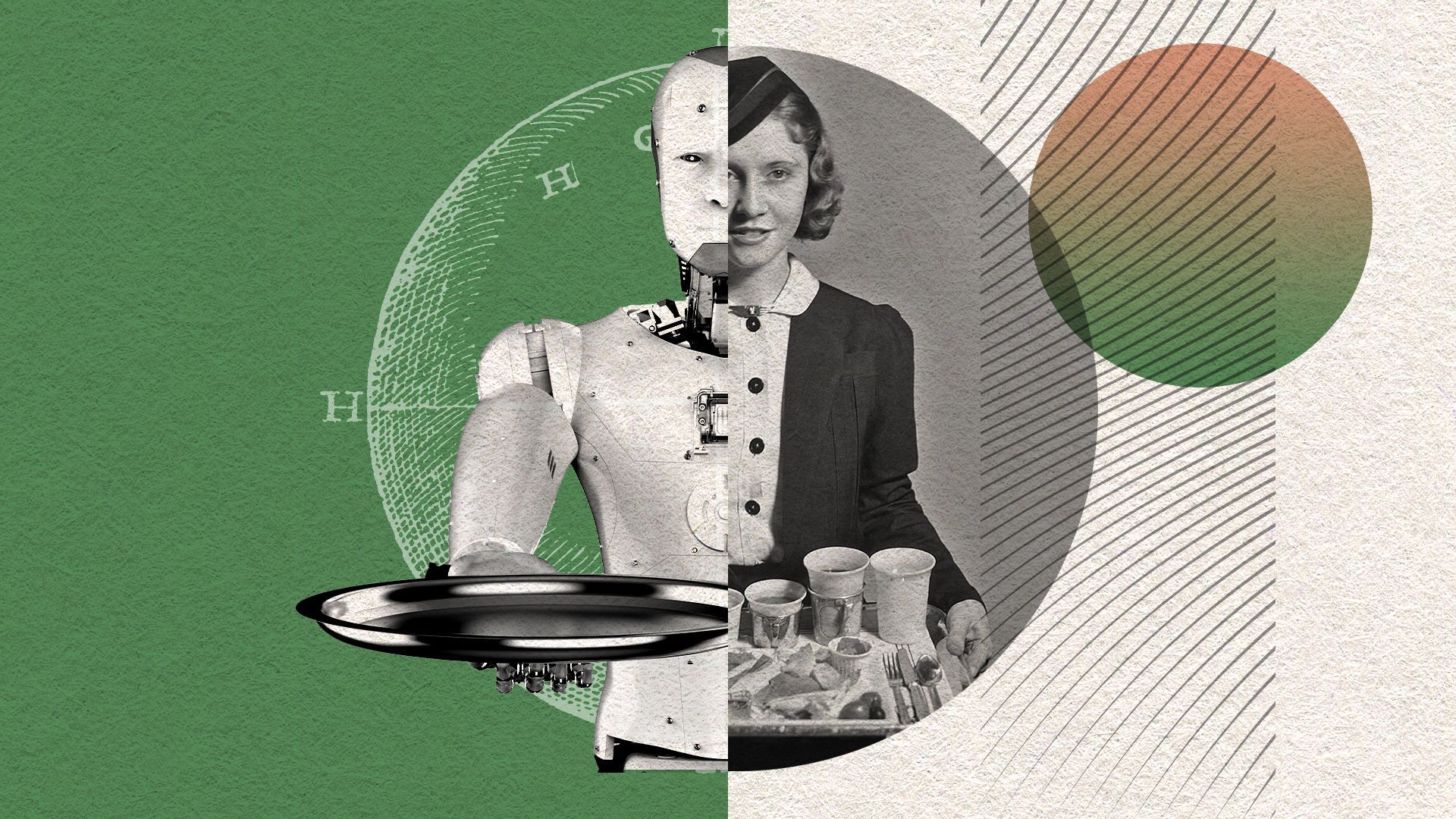 |
|
| Illustration: Aïda Amer/Axios. Photos: Universal History Archive, Pictorial Parade/Getty Images |
| |
| Air travel is becoming a touchless, self-directed journey, which poses a threat to traditional airport customer service jobs. Why it matters: Automation and AI have long been viewed as a threat to jobs. But the unprecedented disruption that the coronavirus pandemic is posing to the travel industry could have lasting workforce implications. Many airports are quickly moving toward "touchless" technology using facial recognition, AI, automation and biometric scanners. - American Airlines, for instance, is testing mobile ID technology at its bag drop area at Dallas/Fort Worth and Reagan National airports.
- Instead of passengers handing their ID to the airline agent, a digital token on their smartphone can verify their identity.
The big question: Could airline industry jobs lost during the pandemic be gone for good? - No way, says Sara Nelson, president of the Association of Flight Attendants-CWA and a leading advocate for aviation workers.
- Even automated baggage systems need humans behind the scenes, she notes.
But it's the entire ecosystem around airports that faces workforce disruption, said Robert Puentes, president and CEO of the Eno Center for Transportation, a nonprofit think tank. - Concessions and ancillary businesses like parking lot shuttles are often minority-owned business enterprises hired by government airport authorities. Some employees are municipal workers.
Go deeper: Your touchless journey of the future |
    |
| |
| |
| 5. Jobs disappear from the sky |
 Reproduced from an Airlines for America report. Chart: Axios Visuals |
    |
| |
| |
| 6. When flying solo feels safer |
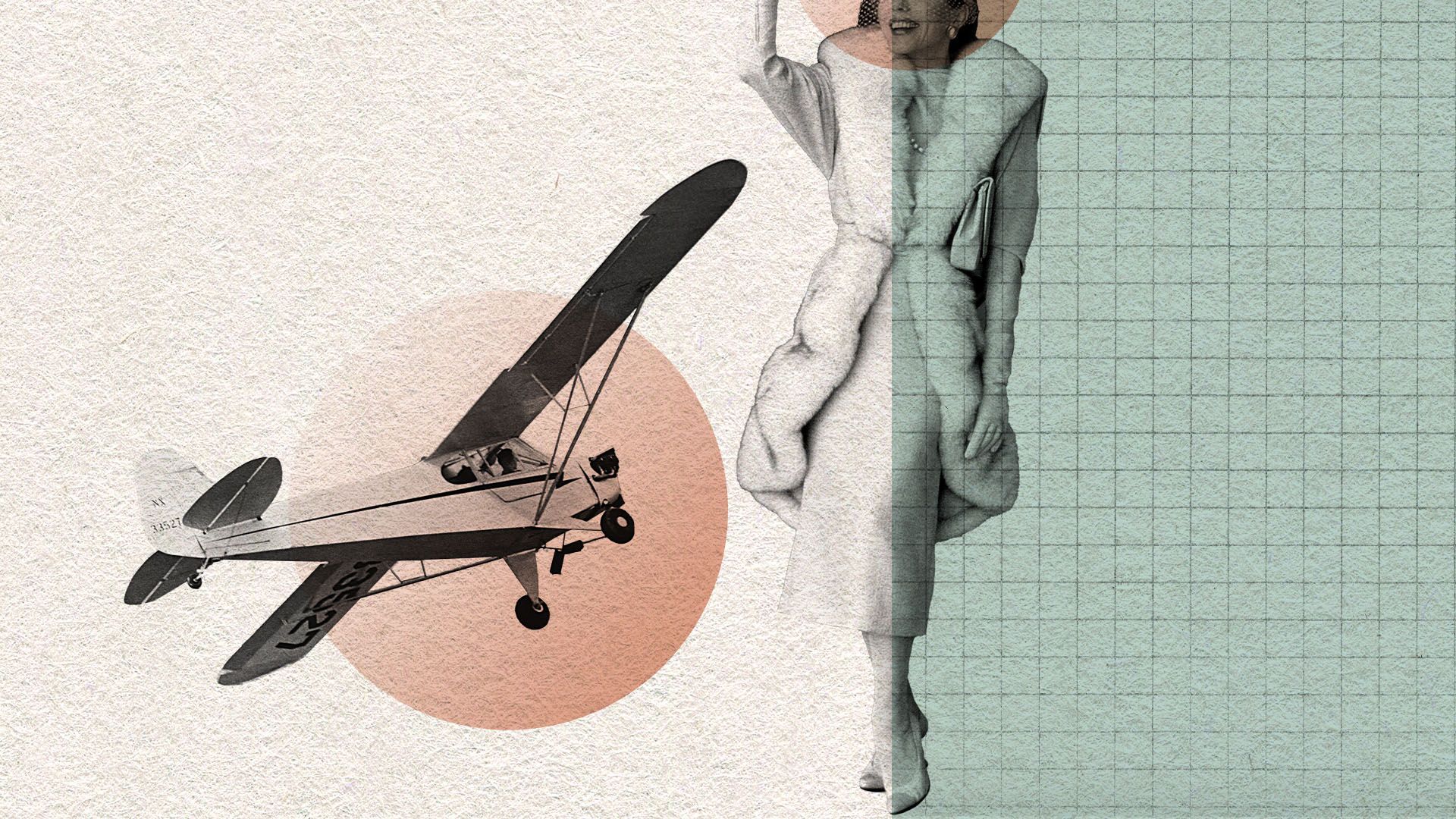 |
|
| Photo illustration: Sarah Grillo/Axios. Photos: Museum of Flight, Eddie Sanderson/Getty Images |
| |
| Some travelers are avoiding commercial flights during the pandemic and opting for private charter flights instead, reports The New York Times. What's happening: A growing number of Americans are booking private charter flights through brokers or directly with companies such as BLADE, XO and JSX. - They can book the whole plane, which can cost $10,000 or more, or just buy a seat, for a few hundred bucks.
- Jet cards, like those offered by fractional ownership companies NetJets and Flexjet, let customers purchase, say, 25 aircraft hours, for a fixed price.
- You can even buy a private jet membership at Costco.
|
    |
| |
| |
| 7. Airlines are piling up losses |
 Reproduced from an Airlines for America report. Chart: Axios Visuals |
    |
| |
| |
| 8. Dogs fly first class |
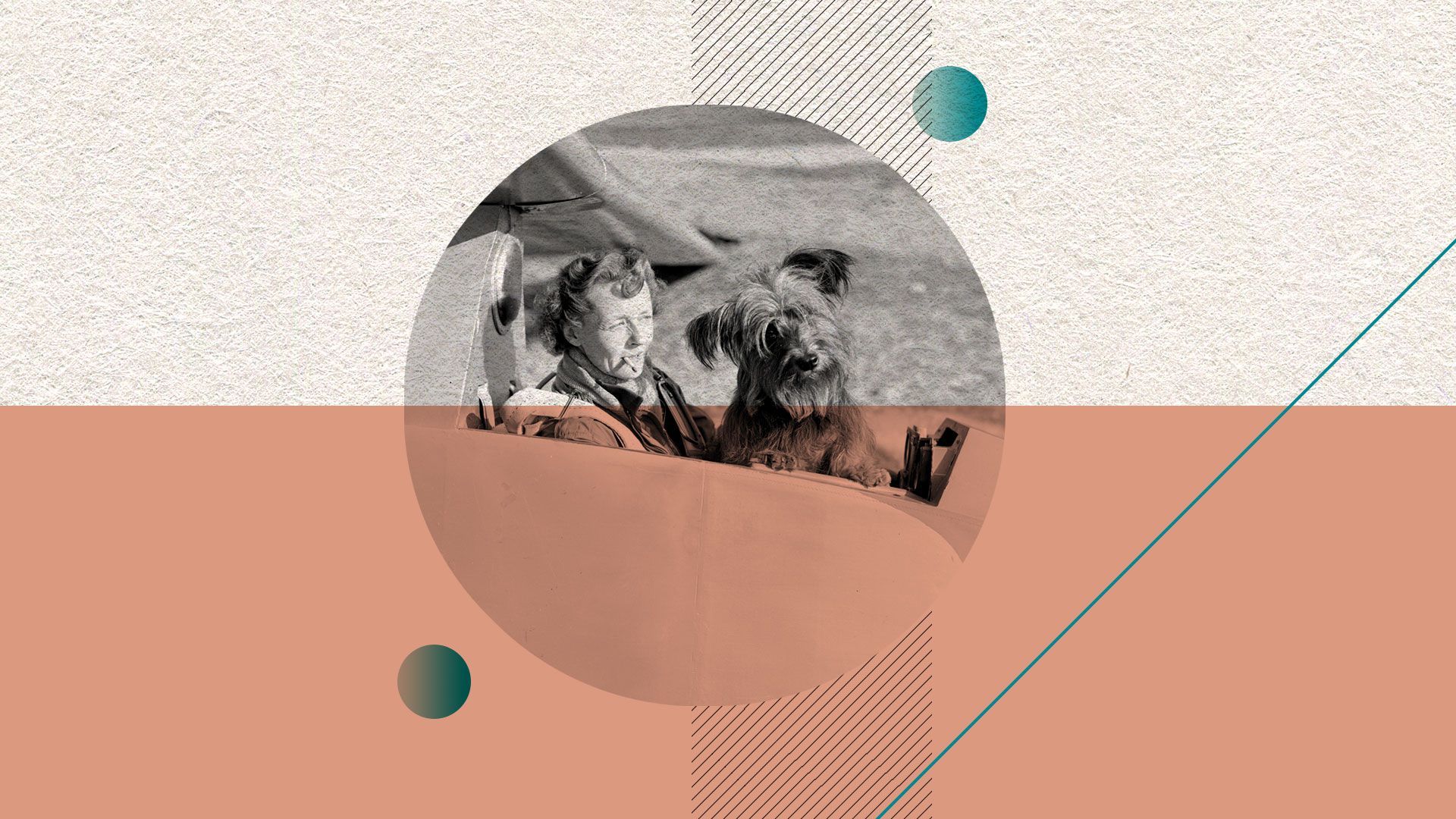 |
|
| Photo illustration: Eniola Odetunde/Axios. Photo: Reg Speller/Getty Images |
| |
| One travel job that is booming during the pandemic is pet delivery specialist. Why it matters: "A desperate nation needs puppies," writes The Wall Street Journal. Pet adoptions and sales have soared during the pandemic, but getting them to their new homes sometimes requires a long journey on an airplane. - Shipping a pet by air cargo is always tricky, but COVID-19 has made it even more difficult because of flight cancellations and schedule changes, according to USA Today.
- Fewer airlines are accepting pets as cargo, and those that do are restricting the size of crates or the number of animals allowed aboard each flight.
What's needed: Heroes willing to mask up and personally deliver Fido to his new family. - Flight nannies are often former airline employees, who still get discounted airfares.
- They pick up pets at the breeder or shelter and accompany them on board.
|
    |
| |
| |
| A message from The Boeing Company |
| Working together to keep you healthy |
| |
 |
| |
| A global partnership has implemented systems to keep travelers and flight crews healthy. Research indicates mask-wearing along with the aircraft's cabin ventilation system help to reduce the risk of virus transmission while flying. See how the industry is coming together. |
| |











No comments:
Post a Comment